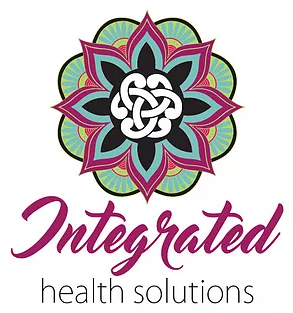The health of your gut flora, or microbiome, is a key factor in the overall health of your entire body. When things get out of balance here it not only affects the gut, but it also has repercussions for the whole body. If you’re starting to develop digestive issues it might be time to ask, “Is dysbiosis causing your ill health?”
What is dysbiosis
The gut microbiome is a complex ecosystem living in your small and large intestines and is comprised of billions of micro-organisms such as bacteria, viruses and yeasts. These micro-organisms exist in a symbiotic relationship with not only each other but the environment they live in—you!
When everything is in perfect balance in the gut, you’ll experience good digestion and the overall benefits this brings to the whole of your body. But, when things get out of balance, for instance, one type of micro-organism has a sudden population increase, or one has a die-off, things quickly become unbalanced, resulting in dysbiosis.
Candida is just one example of ill health caused by dysbiosis. The yeast organisms in the gut have a population explosion and the results can be felt not just in the gut with bloating, constipation, and diarrhoea, but in other parts of the body such as the mouth, genitals, urinary tract and skin.
This is just one form of dysbiosis.
Common signs and symptoms of dysbiosis
The most common symptoms of dysbiosis affect the home of the microbiome, your gut. These often show up as simple digestive issues such as burping, bad breath, bloating, constipation, diarrhoea, and flatulence.
However, dysbiosis can also disrupt other body processes resulting in anxiety, depression, poor focus and concentration, and fatigue. Dysbiosis can also be directly attributable to conditions such as:
- Chronic fatigue
- Acid reflux or heartburn
- Inflammation and aching joints
- Acne, skin rashes and psoriasis
- Food intolerance
- Trouble urinating
What causes dysbiosis
A number of different things cause dysbiosis ranging from what you eat and drink to where you live. Here are some of the known contributors.
Medications
Certain medications severely impact the health of the gut’s microbiome. The most well-known, and commonly prescribed is antibiotics.
Poor diet
What you put into the microbiome’s ecosystem has a profound effect on the micro-organisms living there. Processed food, excessive alcohol intake, caffeinated drinks and eating too much of one thing can be highly detrimental and quickly result in dysbiosis.
Environment
Where you live and how well you manage the climate you live in are key factors. But a less obvious cause is the toxins that could be in your environment. This could be as simple as your household cleaning products, or as complex as the possibility of contaminants in soil and water.
Gender
Your gender can also play a role in dysbiosis. More women than men are found to have irritable bowel syndrome (IBS) and, therefore are more like to have dysbiosis. There are also studies showing a strong link between the health of the microbiome and the health of the endocrine (hormones) system.
Family history
The story of those who have gone before you often tells the tale of your health due to the traditions you’ve inherited. That is, the way you choose to live right down to the diet you eat. But it’s not just traditions, it’s also the genes you inherit.
Aging
Often a part of ageing is a decline in the function of many of our body systems, this includes digestion. Being mindful of how and what you eat becomes even more important.
Mental health
Chronic and mental illness directly affect the gut’s microbiome as do high levels of acute and chronic stress.
How to heal your gut from dysbiosis
As with most other health conditions, the best form of cure is prevention. Learning how to eat in a way that satisfies not only your desire for good eating but also keeps your symbiotic residents happy is the number 1 thing you can do.
Foods that can help include carrots, beetroot, banana, chickpeas, beans, yoghurt (goat or sheep), and bone broths.
Eat these foods fresh rather than processed, and prepared just before eating, is ideal.
Other steps for prevention include:
- Taking probiotic supplements (please consult your health care practitioner for the most appropriate strains) if you’ve been prescribed a course of antibiotics.
- Reducing your stress levels with exercise and meditation.
- Reducing your intake of alcohol, caffeine, and sugar.
- Improving sleep quality with help from your health practitioner.
How to know when you need support from a practitioner
Not all microbiome imbalances are the same. The broad-spectrum general fixes offered by over-the-shelf probiotics might not be 100% effective, because they won’t address the specifics of your personal situation.
To efficiently and effectively recover from dysbiosis you need to know:
- What micro-organism/s have been affected
- Likely causes of the imbalance
- Any other contributing factors
Diagnostic tests include stool testing, testing hydrogen levels in your breath, and the organic acid test. These can be done by your naturopath and the results provide clear indications as to what form of dysbiosis is causing your current health issues. From there appropriate treatment can be prescribed.
Treatment varies depending on the degree of dysbiosis and how long your symptoms have persisted. As well as working with herbs, nutrition, and specialised probiotics, the most important thing to do is improve the overall function of your body and address some of the factors that created dysbiosis in the first place.
Concerned about dysbiosis? Let’s talk. Contact me


